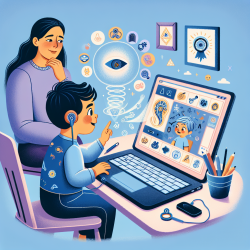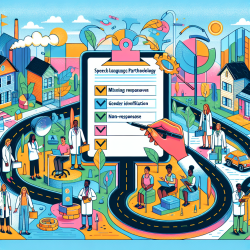In the realm of education and student support, school social workers play a pivotal role in addressing the diverse and complex needs of students. Yet, the increasing demands on their time and expertise often lead to feelings of burnout. The integration of virtual therapy services, such as those provided by TinyEYE, into the school environment presents a promising solution to these challenges, offering a new avenue for support and intervention.
Burnout among school social workers is a growing concern. It stems from a variety of factors, including heavy caseloads, administrative pressures, and the emotional toll of supporting students with significant needs. This state of exhaustion not only affects the well-being of the social workers but also impacts the quality of care and support students receive.
Virtual therapy services emerge as a beacon of hope in this landscape. By facilitating access to specialized therapy services, such as speech therapy, directly through online platforms, schools can significantly alleviate the pressure on social workers. This model allows for more flexible and accessible therapy sessions, ensuring that students receive timely and effective support without adding to the already heavy workload of social workers.
For students with Individualized Education Programs (IEPs), virtual therapy offers a seamless way to integrate essential services into their education plan. It ensures that necessary speech therapy staffing is available, overcoming one of the major hurdles schools face in providing comprehensive support. The use of online therapy services also means that therapy can continue uninterrupted, regardless of external circumstances such as school closures or staffing shortages.
The benefits of virtual therapy extend beyond logistical solutions. For social workers, it means a reduction in the direct management of therapy sessions and coordination, freeing up time to focus on other critical areas of student support. This shift can significantly reduce feelings of burnout, fostering a more sustainable and satisfying work environment.
In conclusion, as school social workers navigate the challenges of their roles, embracing virtual therapy services like TinyEYE offers a path forward. It not only addresses the immediate needs for specialized therapy staffing but also contributes to a healthier, more balanced workload for social workers. By integrating these services, schools can ensure that both their staff and students thrive.










